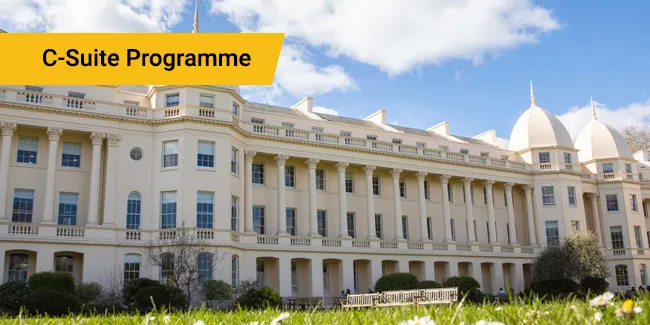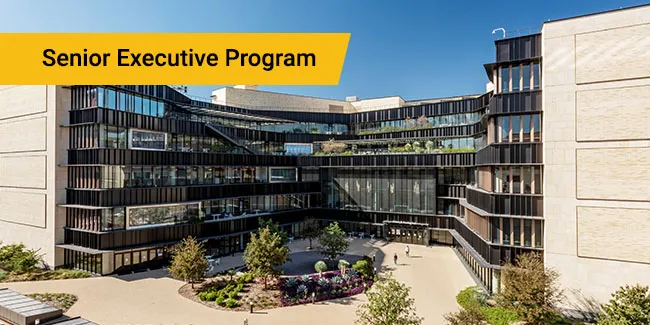Improve Communication Skills with Online Courses & Certificate Programs
Emeritus collaborates with over 50 universities worldwide to bring you comprehensive futuristic learning experiences in various subjects. Below you will find courses with a curriculum designed to help you improve your communication skills. Some courses are designed for senior managers and aspiring leaders, while others are catered to a more specific role, such as a chief product officer. Click on individual courses below to learn about the curriculum, duration, eligibility, highlights, and learning outcomes.
What is a Communication Course?
Communication courses educate learners on the process of human interaction, including the formation, delivery, and reception of verbal and non-verbal communication. They also instruct on the finer nuances of communication, such as body language, to hone your communication skills.
In the workplace, communication fulfills a multitude of functions that we may not encounter in our personal lives. Improved workplace communication has been consistently associated with greater job performance and satisfaction, increased productivity, and empowered employees. A smart text message goes a long way in ensuring customer satisfaction. Similarly, consistency in communication can create a stronger, more unified brand.
What are Communication Skills?
Communication is a life skill. It’s easy to simply utter words and hear others’, but good communication skills focus on proactive listening and speaking, with the end goal being mutual understanding. Also, communication is universally agreed upon as the most crucial skill in potential employees, especially for leadership positions.
Standing out among hundreds and thousands of job-seekers in an increasingly competitive world is crucial. This is where communication comes into play, as it forms the core of every business and ensures the cohesive running of the organization.
A good communicator is an attentive listener who listens not to merely respond but to understand. They ask questions to ensure clarity, wait for the other to finish speaking, and are observant. Noticing non-verbal cues, such as body language and making eye contact, are equally necessary and add significant value to exchanges. Furthermore, gifted communicators strike a fine balance between being approachable and professional, and come from a place of empathy, confidence, and respect.
How to Improve Communication Skills?
Today, we are constantly engaging and interacting with the world around us. Excellent communication skills set us on the road to success, individually and collectively. Therefore, it is necessary to hone our communication skills through regular practice, feedback, and experience. Some ways to improve are:
- Constructive criticism - Sometimes, it may be difficult to discern how effective we are as communicators. Constructive criticism from a trusted friend, colleague, or family member can greatly help identify the loopholes in our communication and the areas that need improvement.
- Taking online communication courses - Given the growing need for successful communication, online courses are found aplenty and are easily accessible. These platforms help learners become excellent communicators by combining role-playing, discussions, and written communication.
- Incorporating better communication habits - Habits lead to consistency, and inculcating effective habits has a long-term impact on communication skills. Find individuals whose communication skills you aspire to, and try to incorporate the same in your interactions. Observing what they do differently and regularly practicing the same is sure to help.
- Seeking opportunities to communicate - Communication can be daunting, especially for introverts or in professional settings. But shying away from it will only lead to setbacks. Instead, be proactive and identify situations that give you the chance to interact.
What are the most common communication styles?
Communication styles can be broadly classified into five categories:
- Verbal communication - Probably the most common style, verbal communication, involves speaking to others. Eye contact, tone, and body language are of great importance in verbal communication. Communication courses train employees to regulate their emotions and consider others’ needs, and nowhere is this more apparent than in verbal communication. Knowing how to ask for things is another area where many often blunder. A nuanced understanding of communication, therefore, is of prime importance.
- Non-verbal communication - Non-verbal communication, more specifically, involves the finer aspects of communication — posture, eye contact, facial expressions, hand movements, and touch. Such cues offer essential insights into what somebody is trying to convey. For instance, the listener may seem to agree with your ideas, but if they’re standing with their hands crossed, a body language expert will view it as a sign of disagreement.
- Written communication - All forms of written communication, be it an email, a Tweet, or a blog post, aim to disseminate information precisely and concisely. An important aspect of written communication is longevity. While writing, we must ensure that our message stands true in the long term.
- Active listening - Listening is often overlooked when it comes to communication. However, it is perhaps the singular most important aspect. If we don’t listen, we cannot engage, and the interaction becomes futile. Therefore, listening is of prime importance, from negotiating a business deal to consoling a loved one.
- Visual communication - In recent times, human society has come to place immense value on visual communication. We consume an unprecedented volume of visual information daily — via advertisements, films, memes, and videos, among others. A picture is truly worth a thousand words! Thus, creating and curating thoughtful, impactful, and relatable visual information is an indispensable part of effective communication.
What Jobs Use Communication?
According to the US Bureau of Labor Statistics, employment in media and communication is projected to grow 14% from 2020 to 2030. This pace of growth is faster than the average for all other occupations. Although a prerequisite in nearly every sector, specific industries and roles need communication more than others.
Jobs in business that require communication include a manager, customer service representative, human resource manager, communication consultant, training and development specialist, and event coordinator.
Surprisingly, the IT industry places great importance on communication. As technology morphs into a strategic imperative for businesses, IT professionals are required to interact more and more frequently with clients and stakeholders. So naturally, they must supplement their technical expertise with top-notch communication training.
Another industry where communication plays a significant role is media and marketing. Job-seekers can select from a wide range of roles, such as account executive, copywriter, digital marketer, booking agent, and public relations specialist.
Many roles in the government and education sectors also prioritize communication. These include press secretary, public affairs specialist, bureau writer, community affairs specialist, and professor.













